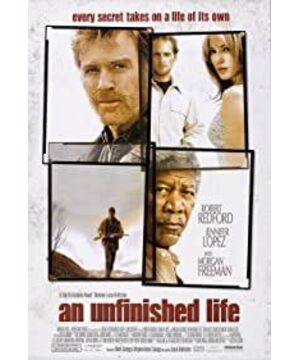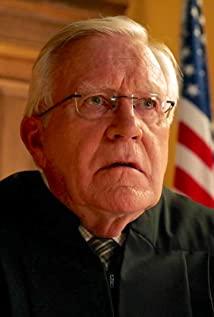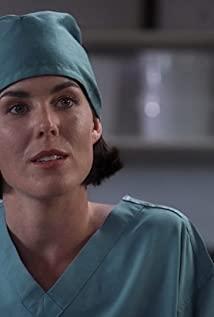This is a story that happened in a broken family. Life is not easy for Jane, who has lost her husband, and her daughter Greif. She couldn't continue with her weird boyfriend, so she had to leave. Because there was nowhere to go, she finally decided to take her child to the ranch in Wyoming to temporarily take refuge in the child's grandfather Aina. His son Griffin was killed in a car accident, and Ena's ranch could not be opened anymore. He manages the ruined farm alone, taking care of the daily life of his old friend Mitte, who was crippled by the brown bear. A car accident ended his son's life and at the same time shattered the normal life of the family. The cloud of failure hung over Ena's heart, lingering. Griffin never appeared in the film, but his unfinished life is the background of the whole story.
No one wants to encounter misfortune, but perhaps life after suffering is more real and more valuable. This view is rarely accepted by Chinese people. I don’t remember seeing domestic writers, screenwriters, and directors dealing with this topic very well. For failure and misfortune, we are accustomed to blame others and blame the enemy. Finally, we indulge ourselves in the imagination of defeating the enemy and achieving success. Overthrowing the three mountains and being the master of the house is almost such a way of coping with suffering.
The failure in front of me, the misfortune above my head, is where this film started. But the film does not exaggerate or exaggerate the suffering. While showing the characters' inner suffering, it also reminds the subtle natural beauty and the goodness of human nature. The unfinished life is not what Griffin who has died cares about, but the reality that all living people must face. Taking an 11-year-old girl as an opportunity, the film vividly shows the audience the new force in life. Indeed, life is alive and dead, but human life will never stop. Somewhere invisible and intangible, the power beyond the individual is constantly accumulating and continuing to move forward. Life goes on, which is what the film will tell.
I really like this movie. The peaceful rural scenery, the deserted life scene, the simple and plain tone, and the two men sitting in the corner enjoying the peace of leisure are all beautiful. However, it suddenly occurred at night that the emotion between Aina and the dead Griffin would be reasonable if it happened to the father and the underage child. However, between the two adults, there is no distinction between you and me. Is harmony really possible? In addition, growing up in such a family, if it is impossible to draw nourishment from the parents, where does Greif's beauty come from? I still feel that real life stories and fictional stories based on values are not the same.
View more about An Unfinished Life reviews











